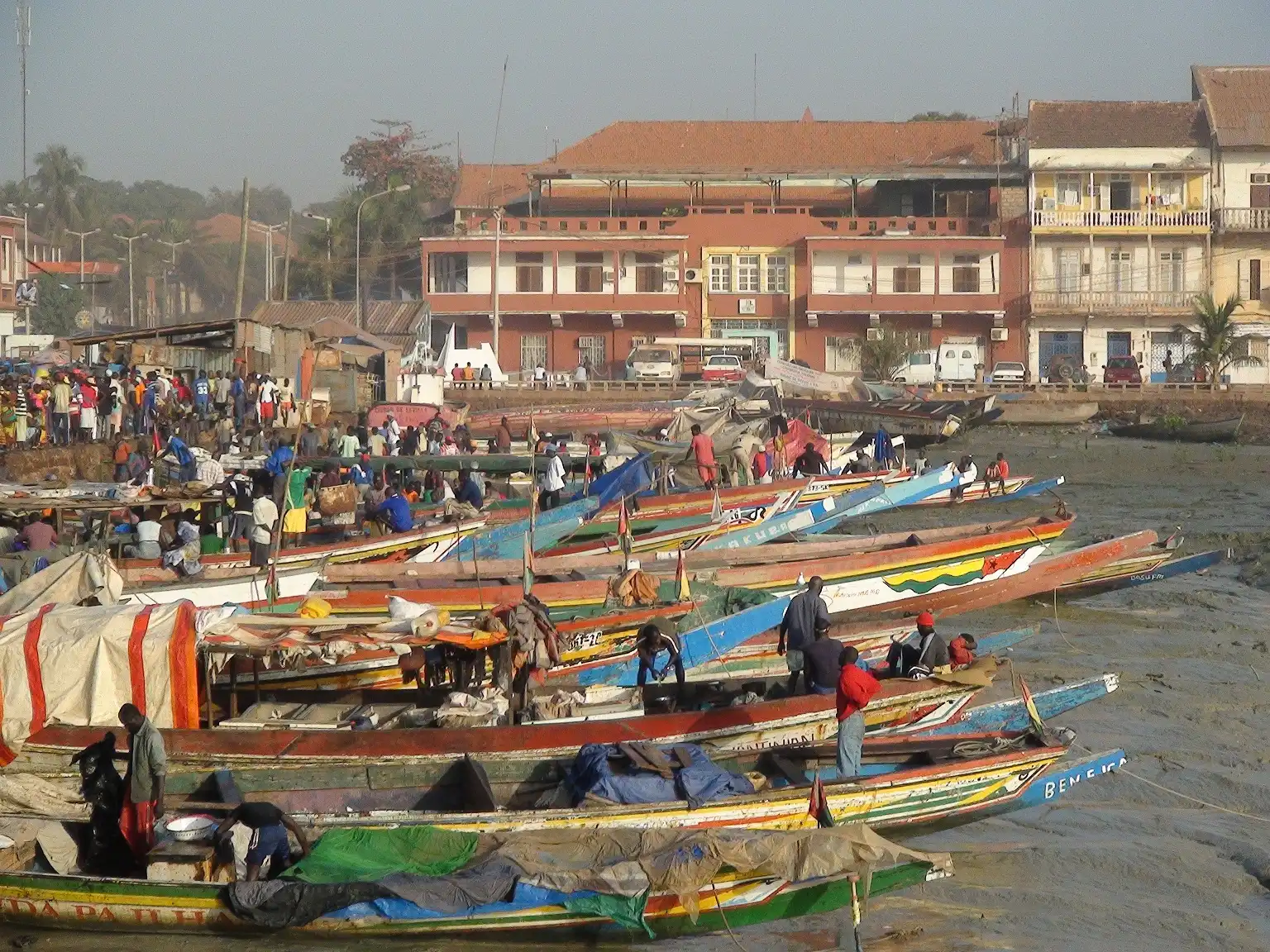
7 Days (1 Week) Itinerary in Guinea-Bissau - Travel Guide
A Week in the Wild West of Africa: Guinea-Bissau - What to do in Guinea-Bissau for 7 days?
| Days | Description | Overnight |
|---|---|---|
| 1 | Day 1 - Arrival & Exploration of Bissau | Bissau |
| 2 | Day 2 - Heart of Bissau | Bissau |
| 3 | Day 3 - Bissau to Bafatá | Bafatá |
| 4 | Day 4 - Bafatá to Gabú | Gabú |
| 5 | Day 5 - The Wildlife of Cantanhez National Park | Jemberem |
| 6 | Day 6 - Bijagós Archipelago | Bijagós |
| 7 | Day 7 - Bijagós Archipelago to Bissau | Bissau |
Introduction
Experience a week of enchanting beauty, culture, and adventure in Guinea-Bissau, an untouched gem in the heart of West Africa. Our itinerary has it all - unique wildlife, stunning landscapes, vibrant markets, and a taste of the local action and tradition.
Day 1 - Arrival & Exploration of Bissau
Kick start the adventure by arriving in the capital city, Bissau. After settling into your hotel, let's dive right into the local scene. Begin by visiting Amílcar Cabral's Mausoleum, a perfect spot to honor Guinea-Bissau's liberation leader. Follow this with a visit to the vibrant Bissau Guinean National Ethnographic Museum, to get an insight into the country's rich cultural history. Finish the day off with a delicious local meal at a nearby restaurant.
Day 2 - Heart of Bissau
Day two is all about exploring the different shades of Bissau. Start with the buzzing Bandim Market, a place that will hit your senses with its vibrant energy and colors. Here, you can buy anything from tropical fruits, spices to beautiful fabrics. Then, stroll towards the old city quarter of Portuguese Bissau, featuring colonial architectural treasures. End the day watching a mesmerizing sunset by the Bissau port with the local fishermen.
Day 3 - Bissau to Bafatá
Today, embark on a road trip to Bafatá, the birthplace of the liberation leader, Amílcar Cabral. The town provides a fascinating mix of pre-colonial, colonial, and post-colonial architecture. Do not miss the visit to Casa de Amílcar Cabral, his birthplace turned museum.
Day 4 - Bafatá to Gabú
Today, you're off to Gabú, the administrative and commercial center of the region. Visit the local market, where you can meet the nomadic Fulas, and indulge in a variety of local dishes. Have a stroll around the city with many stories preserved in cobblestone streets, rusty roofs, and vibrant houses.
Day 5 - The Wildlife of Cantanhez National Park
A trip to Guinea-Bissau won't be complete without a visit to the Cantanhez National Park. Get ready for some wildlife spotting including chimpanzees, monkeys, and a myriad of bird species. The flora of the region is equally enchanting, with rare tropical plants scattered throughout the park.
Day 6 - Bijagós Archipelago
Take a boat trip to the pristine Bijagós Archipelago. It is a UNESCO biosphere reserve, home to diverse bird species, turtles, and other marine wildlife. Spend the day beach-combing, snorkeling, or laying lazily on palm-fringed sandy beaches. The islands are also known for their vibrant tribal cultures and sacred rituals.
Day 7 - Bijagós Archipelago to Bissau
On your last day, sail back to Bissau. Use this day to unwind, enjoy a cup of local coffee, and reflect upon the incredible journey you've been on, before catching your flight back home.
Summary of this itinerary
This 7-day itinerary offers a deep dive into the cultural, historic, and natural wonders of Guinea-Bissau. It balances city exploration with wildlife encounters and beach relaxations, perfectly showcasing the variety that this vibrant West African country has to offer. Get ready to be mesmerized by the untouched beauty and plentiful adventures that await in Guinea-Bissau!

Benjamin Clark
FAQs about this
7 day itinerary in
Guinea-Bissau
The best time to visit Guinea-Bissau is during the dry season from November to May, when the weather is cooler and wildlife viewing is at its best.
Guinea-Bissau's cuisine is based around fish, rice, and tropical fruits. Don't miss the chance to try 'caldo', a fish stew, and 'jollof rice', a West African dish with chicken and vegetables.
Guinea-Bissau is generally safe for tourists, however, as in any foreign country, it's always important to stay alert, avoid isolated areas, especially at night, and keep an eye on your belongings.
